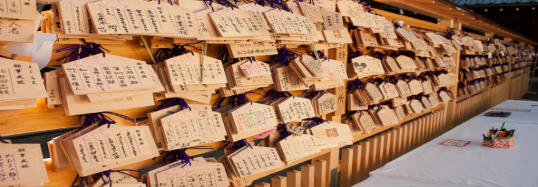
Japanese names
Japan is a unique country, which totally differs from the rest of the countries of the world. It has a unique cuisine, a living, which is characteristic of him. Even the customs of the Japanese differ from those of other nations. The names of the Japanese are also unique.
The Japanese names have two components: a name (surname), which is passed from generation to generation and a name, which is given after birth. Usually, when introducing themselves they write their surname and then–name. However, nowadays, in the European style sometimes they write their name first and then–surname.
Historically not every Japanese had the right to have a surname. Only the representatives of aristocracy and samurais had surnames. The common villagers, which made the majority of the population, had only a name. However, the women irrespective of their social status did not have the right to have a surname. They even didn’t need it, because at that time they didn’t have the right for inheritance. Later on, during the era of Meiji restoration each Japanese had the right to add a surname to his name.
The names of the Japanese are unique not only for the Europeans but also for the Japanese themselves, as they make up their names by means of open hieroglyphs. It is ironical that the most difficult thing in the Japanese language is to articulate your own name.
There is also a difference between the names of feminine and masculine genders. The masculine name is connected with the “number” of the child: they take into consideration which child he is in the family. It is displayed by means of the suffix of the name: if the child is the first in the family, they use the suffix –ichi or –kaju, and if he is the second – the suffix –ji. In case of the third child of the family, they use the suffix –jo.
The feminine names mainly have the suffixes –ko or –mi, which respectively mean “a child” and “a beauty”. In our times, some of the girls oppose to this order and therefore they may refuse the suffix.
The surnames are not so difficult as the names. They are not so many and there are no rare surnames.
The Japanese names have another peculiarity: after the death of a person, they give him another name. There exists a special wooden panel, where they mark that new name. They perceive it as the embodiment of the spirit of the deceased and use it during the commemoration rituals.
the material is taken from https://nipponnitsuite.wordpress.com/2014/10/05/japanese_names/
translated from Armenian into English by M.Vardanyan










